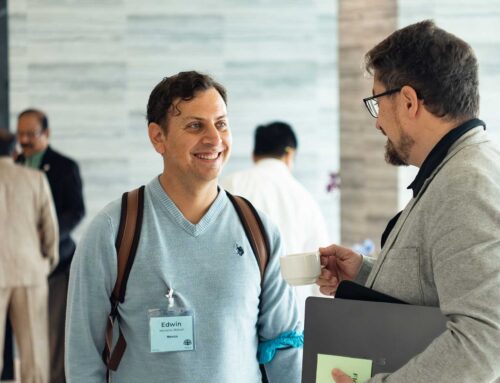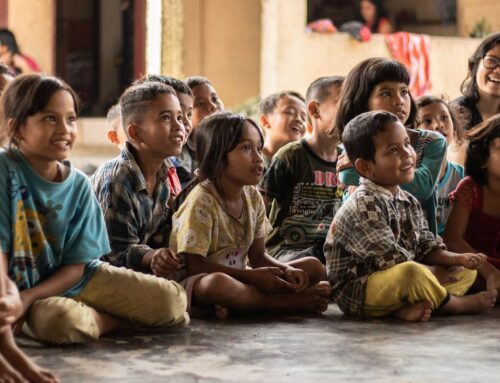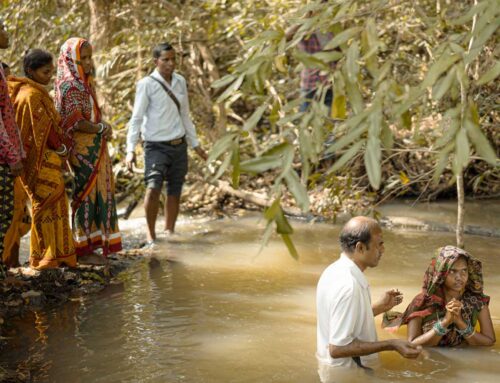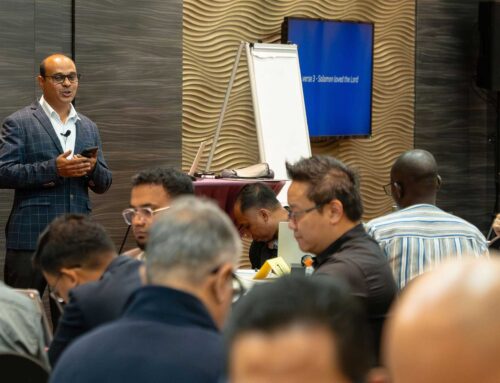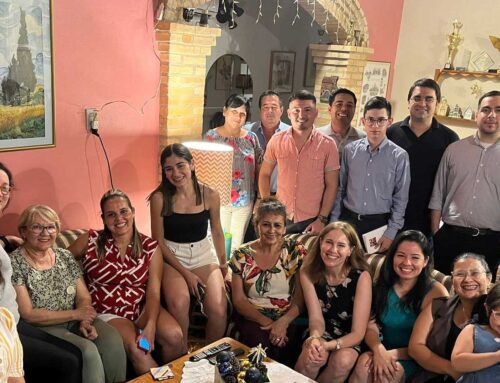“Mini” Steps Making a Major Impact for the Gospel
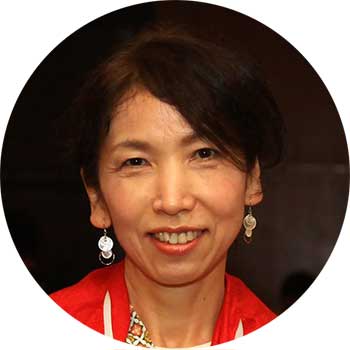 Just 75 years after the horrors of the second world war, Japan is a shining example of a country’s capacity for reconciliation and diplomacy. The cultural influence of international allies is evident in everything from entertainment to architecture, while religion is one area of Japanese life that remains almost completely closed to outside influence. Nearly 70% of the Japanese population do not consider themselves to be religious, and only 1% of Japanese people identify as Christians.
Just 75 years after the horrors of the second world war, Japan is a shining example of a country’s capacity for reconciliation and diplomacy. The cultural influence of international allies is evident in everything from entertainment to architecture, while religion is one area of Japanese life that remains almost completely closed to outside influence. Nearly 70% of the Japanese population do not consider themselves to be religious, and only 1% of Japanese people identify as Christians.
Haggai leader Ayako Kawasaki helps lead Sayama Evangelical Church in Osaka with her husband. When she attended the Haggai Leader Experience in Singapore in 2006, she was one of only 55 leaders from Japan to ever be equipped at the international level.
Ayako became a Haggai faculty member, and she set her sights on creating more opportunities for local Haggai leaders in Japan.
“In the 2000s, another Haggai leader organized a national alumni association and conducted a national seminar. But the ministry had to tread carefully because of the unpredictable situation in Japan.”
In 2019, Ayako reached out to other Haggai faculty members to help restart Haggai seminars in Japan. With the help from fellow leaders across the globe, she helped restart Haggai Japan. After their initial meeting, the small alumni association planned seven “mini-seminars” covering the same subjects taught at the international level. The smaller seminars were a perfect fit for the new virtual format necessitated by the COVID-19 pandemic. And the incremental approach has been received well by Japanese Christians discouraged by the difficult nature of ministry in such a secular nation.
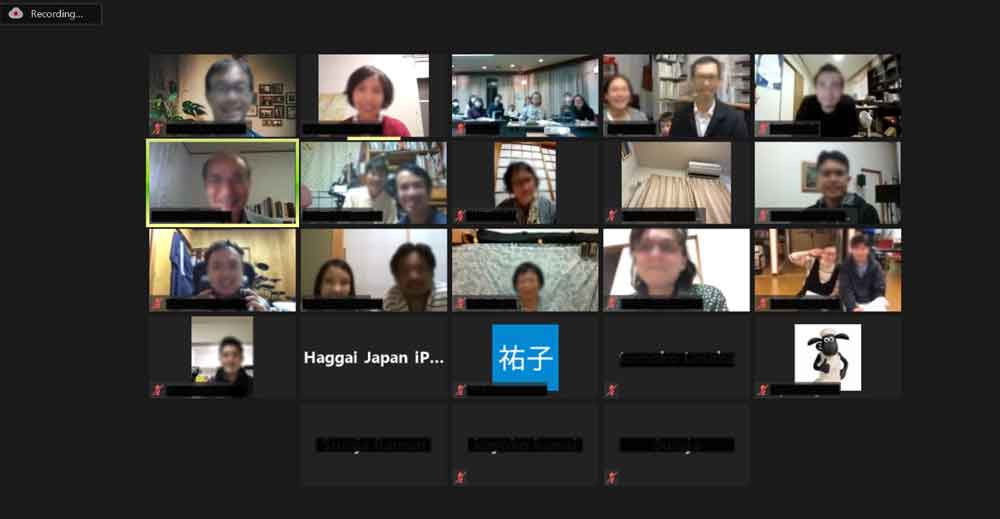
“One thing I realized recently is the need of sessions based on the Japanese situation; where it is extremely difficult to win souls. Pastors and Christians have worked so hard to share the Gospel for years, but with little harvest. We need years of patience to share the Gospel. It can take up to ten years to build relationships, and even longer to build trust. It demands a lifelong commitment.”
Sharing the Good News in Japan requires a respect for, and a nuanced understanding of, Japanese culture. That is where the Haggai model of local leaders equipping other local leaders becomes so valuable.
“It is important in our culture to emphasize that Haggai is not about Western ministry. When a faculty member, who understands well about a participant’s pain and sorrows, and facilitates in their own language, the participants are greatly encouraged and equipped with new strength.”
Since 1972, when the first Japanese Haggai leader was trained, there have only been about 5 new local Japanese leaders equipped each year. But with the new virtual mini-seminars, 46 new local leaders have been equipped in 2020 alone. Ayako credits this to the biblical ideas of faith, diligence, and commitment.
“The biblical principle that guided us was that if we do larger things than God assigned, we fail or are exhausted. However, if we do small things faithfully, God will guide us step by step.”
“Mini” Steps Making a Major Impact for the Gospel
 Just 75 years after the horrors of the second world war, Japan is a shining example of a country’s capacity for reconciliation and diplomacy. The cultural influence of international allies is evident in everything from entertainment to architecture, while religion is one area of Japanese life that remains almost completely closed to outside influence. Nearly 70% of the Japanese population do not consider themselves to be religious, and only 1% of Japanese people identify as Christians.
Just 75 years after the horrors of the second world war, Japan is a shining example of a country’s capacity for reconciliation and diplomacy. The cultural influence of international allies is evident in everything from entertainment to architecture, while religion is one area of Japanese life that remains almost completely closed to outside influence. Nearly 70% of the Japanese population do not consider themselves to be religious, and only 1% of Japanese people identify as Christians.
Haggai leader Ayako Kawasaki helps lead Sayama Evangelical Church in Osaka with her husband. When she attended the Haggai Leader Experience in Singapore in 2006, she was one of only 55 leaders from Japan to ever be equipped at the international level.
Ayako became a Haggai faculty member, and she set her sights on creating more opportunities for local Haggai leaders in Japan.
“In the 2000s, another Haggai leader organized a national alumni association and conducted a national seminar. But the ministry had to tread carefully because of the unpredictable situation in Japan.”
In 2019, Ayako reached out to other Haggai faculty members to help restart Haggai seminars in Japan. With the help from fellow leaders across the globe, she helped restart Haggai Japan. After their initial meeting, the small alumni association planned seven “mini-seminars” covering the same subjects taught at the international level. The smaller seminars were a perfect fit for the new virtual format necessitated by the COVID-19 pandemic. And the incremental approach has been received well by Japanese Christians discouraged by the difficult nature of ministry in such a secular nation.

“One thing I realized recently is the need of sessions based on the Japanese situation; where it is extremely difficult to win souls. Pastors and Christians have worked so hard to share the Gospel for years, but with little harvest. We need years of patience to share the Gospel. It can take up to ten years to build relationships, and even longer to build trust. It demands a lifelong commitment.”
Sharing the Good News in Japan requires a respect for, and a nuanced understanding of, Japanese culture. That is where the Haggai model of local leaders equipping other local leaders becomes so valuable.
“It is important in our culture to emphasize that Haggai is not about Western ministry. When a faculty member, who understands well about a participant’s pain and sorrows, and facilitates in their own language, the participants are greatly encouraged and equipped with new strength.”
Since 1972, when the first Japanese Haggai leader was trained, there have only been about 5 new local Japanese leaders equipped each year. But with the new virtual mini-seminars, 46 new local leaders have been equipped in 2020 alone. Ayako credits this to the biblical ideas of faith, diligence, and commitment.
“The biblical principle that guided us was that if we do larger things than God assigned, we fail or are exhausted. However, if we do small things faithfully, God will guide us step by step.”
“Mini” Steps Making a Major Impact for the Gospel
 Just 75 years after the horrors of the second world war, Japan is a shining example of a country’s capacity for reconciliation and diplomacy. The cultural influence of international allies is evident in everything from entertainment to architecture, while religion is one area of Japanese life that remains almost completely closed to outside influence. Nearly 70% of the Japanese population do not consider themselves to be religious, and only 1% of Japanese people identify as Christians.
Just 75 years after the horrors of the second world war, Japan is a shining example of a country’s capacity for reconciliation and diplomacy. The cultural influence of international allies is evident in everything from entertainment to architecture, while religion is one area of Japanese life that remains almost completely closed to outside influence. Nearly 70% of the Japanese population do not consider themselves to be religious, and only 1% of Japanese people identify as Christians.
Haggai leader Ayako Kawasaki helps lead Sayama Evangelical Church in Osaka with her husband. When she attended the Haggai Leader Experience in Singapore in 2006, she was one of only 55 leaders from Japan to ever be equipped at the international level.
Ayako became a Haggai faculty member, and she set her sights on creating more opportunities for local Haggai leaders in Japan.
“In the 2000s, another Haggai leader organized a national alumni association and conducted a national seminar. But the ministry had to tread carefully because of the unpredictable situation in Japan.”
In 2019, Ayako reached out to other Haggai faculty members to help restart Haggai seminars in Japan. With the help from fellow leaders across the globe, she helped restart Haggai Japan. After their initial meeting, the small alumni association planned seven “mini-seminars” covering the same subjects taught at the international level. The smaller seminars were a perfect fit for the new virtual format necessitated by the COVID-19 pandemic. And the incremental approach has been received well by Japanese Christians discouraged by the difficult nature of ministry in such a secular nation.

“One thing I realized recently is the need of sessions based on the Japanese situation; where it is extremely difficult to win souls. Pastors and Christians have worked so hard to share the Gospel for years, but with little harvest. We need years of patience to share the Gospel. It can take up to ten years to build relationships, and even longer to build trust. It demands a lifelong commitment.”
Sharing the Good News in Japan requires a respect for, and a nuanced understanding of, Japanese culture. That is where the Haggai model of local leaders equipping other local leaders becomes so valuable.
“It is important in our culture to emphasize that Haggai is not about Western ministry. When a faculty member, who understands well about a participant’s pain and sorrows, and facilitates in their own language, the participants are greatly encouraged and equipped with new strength.”
Since 1972, when the first Japanese Haggai leader was trained, there have only been about 5 new local Japanese leaders equipped each year. But with the new virtual mini-seminars, 46 new local leaders have been equipped in 2020 alone. Ayako credits this to the biblical ideas of faith, diligence, and commitment.
“The biblical principle that guided us was that if we do larger things than God assigned, we fail or are exhausted. However, if we do small things faithfully, God will guide us step by step.”



